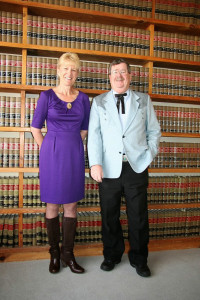 A good plan can help preserve the value of an estate, circumvent or minimize intervention by the court and lower the stress of loved ones who are already trying to cope with loss.
A good plan can help preserve the value of an estate, circumvent or minimize intervention by the court and lower the stress of loved ones who are already trying to cope with loss.
Stories abound of tax debacles whereby heirs receive a pittance of the estate’s total value. That’s a shame, because such situations are almost completely avoidable. A good estate plan is all about forethought: taking into account tax implications of various financial agreements, deciding who you want to benefit from the estate and making a thorough, current assessment of the estate itself. Clients are frequently surprised when they discover the estate is bigger than they realized.
The new tax exemptions for 2014 may make you think estate planning is unnecessary, but a good estate plan incorporates much more than just estate tax:
- Can you be sure your estate will be passed to the loved ones who best deserve it?
- Is there one document, stored in a safe deposit box, listing all your assets in every form, complete with bank account numbers, credit card numbers and passwords?
- Is there a video of house contents?
- Are your beneficiary lists up to date?
- Is there a parcel of land that should remain in one piece, rather than having it split among heirs?
- When was the last time you had an appraisal on valuables such as artwork and jewelry?
- What will happen to the estate if married children should divorce? Will the grandchildren be denied their inheritance?
- Is there a 401k involved, and how do you leave it intact when passing to the children?
- How do you feel about using extraordinary means to keep you or your spouse alive, given such a procedure could completely drain the estate?
- What is the current after-tax value of the estate?
- What are the current estate tax and income tax laws, and how will they impact the estate?
These are but a few of the questions to be answered in a good estate planning process—a process that can maximize the transfer of wealth, relieve some of the family stress associated with your passing and establish a trusted friend or family member to make decisions instead of someone appointed by the court.
Peter Tracy has developed a process to bring out all these answers and more, and to provide the client with a full and complete understanding of their estate.

